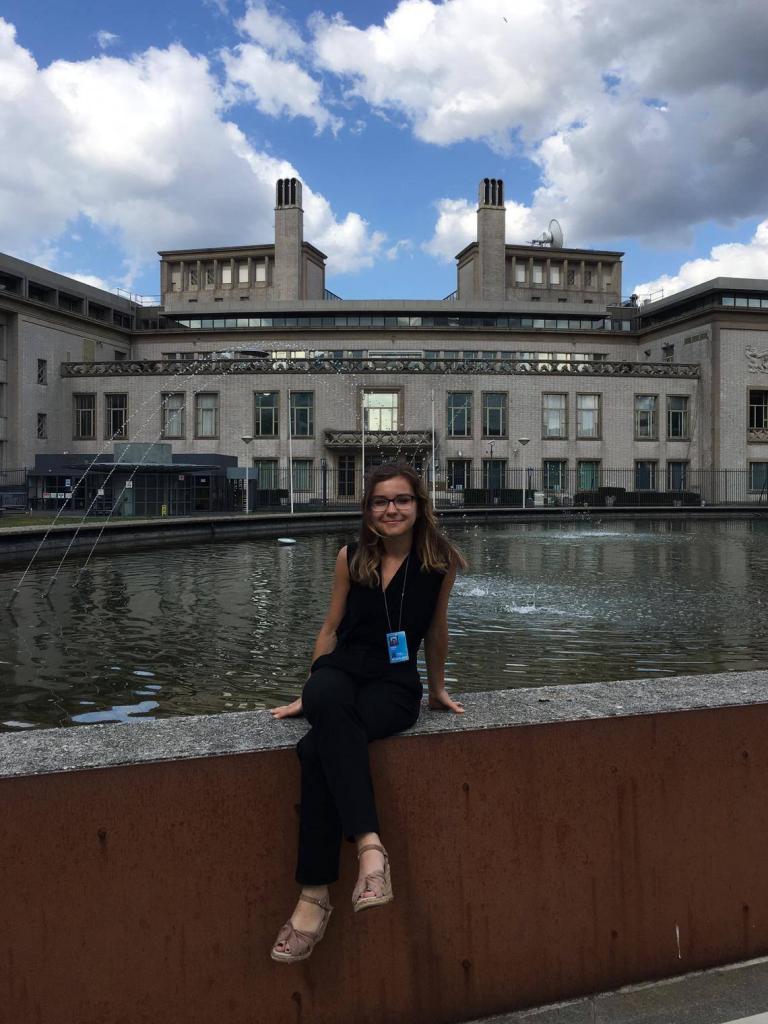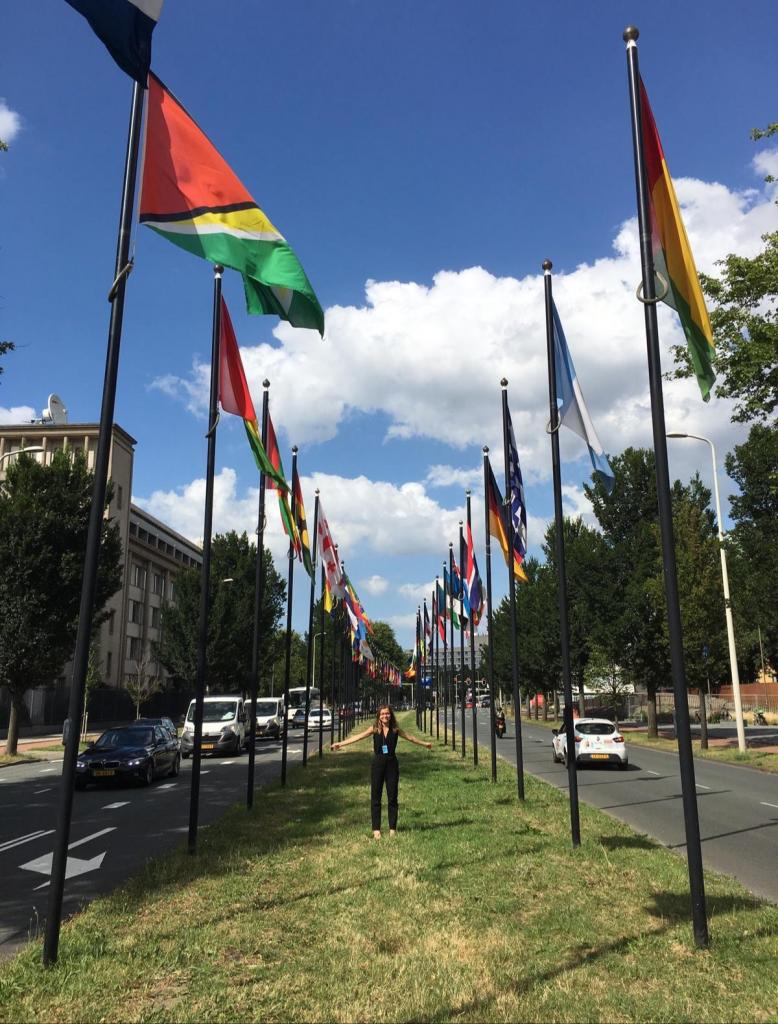Secondary menu
2019 Fellowship: UN International Residual Mechanism for Criminal Tribunals
Teodora Pasca
What year are you in?
2L
Which organization did you work for, and in which city and country?
I worked for the United Nations International Residual Mechanism for Criminal Tribunals (IRMCT) in The Hague, Netherlands. This tribunal has jurisdiction over war crimes, crimes against humanity, and genocide charges relating to conflicts in the former Yugoslavia and Rwanda.
 Teodora Pasca in front of the International Residual Mechanism for Criminal Tribunals. Credit: Rebecca Dickey.
Teodora Pasca in front of the International Residual Mechanism for Criminal Tribunals. Credit: Rebecca Dickey.
What were the highlights of your fellowship?
I worked in Chambers supporting the legal staff of the IRMCT judiciary. In several cases, I was asked to survey the law on issues the tribunal had not yet concretely decided. Much of my research involved consulting criminal law and procedural standards across international and domestic jurisdictions--everything from the circumstances in which to admit hearsay, to what to do when an accused dies before the completion of their appeal.
Even though there were a lot of Canadians at the IRMCT, a highlight for me was the privilege of working with colleagues from all around the world and from different legal traditions. Furthermore, there was a strong international intern community in The Hague; through social events, I met students and recent graduates working at other courts or NGOs. The next time I want to go overseas, I have a lot of couches I can crash on!
What were some of the challenges that you faced this summer?
The volume and complexity of the evidence in international criminal proceedings was greater than I could have imagined. It was challenging to holistically wrap my head around enormous criminal cases (often involving hundreds or thousands of individual incidents and victims) while working on only small pieces of them. Given the gravity of the international crimes prosecuted at the IRMCT, I was initially shocked by the graphic nature of some of the exhibits and testimony, though my emotional strength in that regard definitely increased over time.
What were some of your first impressions of the country/city where you completed your fellowship? How/Did these impressions change over time?
The Hague is way cleaner, quieter, and sleepier than downtown Toronto. Over time, I really came to embrace the new environment and tried to make the most of that experience by living like a local. I sampled new cheeses from the grocery stores every week, tried (and failed) to learn some Dutch phrases, and rode my bike everywhere I went.
Share anything interesting about your experience (best meal, favourite memory, etc.).
I travelled around Europe as much as I could, using weekends and vacation days to explore new countries. I encourage IHRP fellows to do the same wherever they are placed if they have the opportunity, because travel itself (especially solo travel) can be an amazing educational experience.
What advice do you have for students hoping to be an IHRP fellow next year?
I recommend applying widely and applying early (long before the internal funding application deadline). I would also encourage students not to be intimidated by applying to large, prestigious organizations like the United Nations. Many IHRP fellows have secured placements at such organizations and have had amazing experiences, which speaks to the strength of U of T Law’s reputation around the world.
 Teodora Pasca standing between the flags of the world in the Hague's International Quarter, where the IRMCT is located. Credit: Rebecca Dickey.
Teodora Pasca standing between the flags of the world in the Hague's International Quarter, where the IRMCT is located. Credit: Rebecca Dickey.
